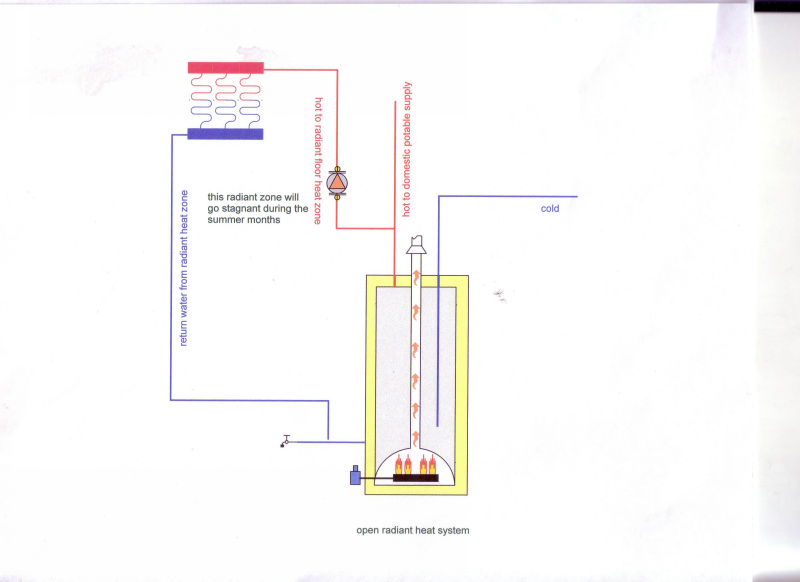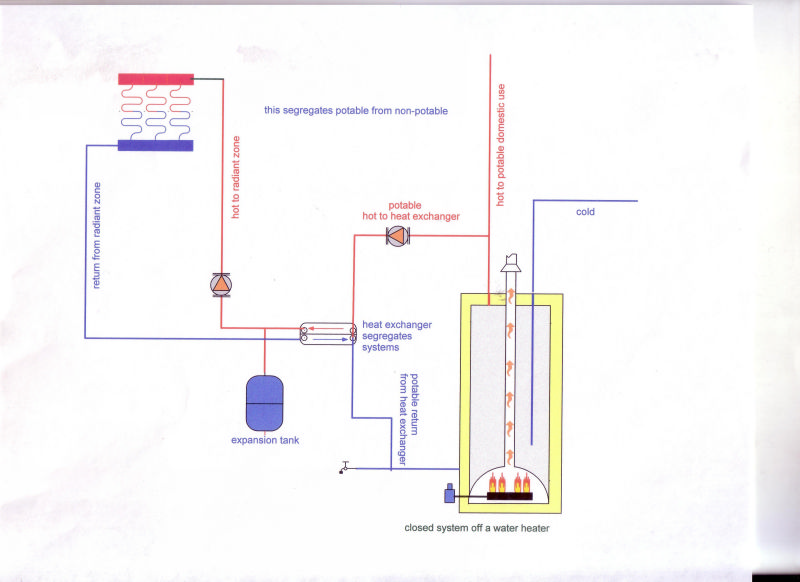
If you want to create an argument amongst radiant floor heat installers, bring up the subject of open radiant heat systems. An
open radiant floor heat system is one in which the potable water that serves the drinking and bathing needs of the house is also used to heat the floors. This I have personally seen being done around my neck of the woods. I'll tell you right up front that my company has never done this practice and it never will. That being said, in the State of Ohio, there is nothing in the plumbing or mechanical codes that forbid this from being done. It is however, in my opinion not good plumbing practice to let warm water go stagnant and then feed it back to the potable water system. There is a disease known as Legionnaires Disease. It is cause by the bacteria Legionella Pneumophila and the bacteria is present in many water systems. It usually doesn't get to multiply to a stage where it causes health issues. But it grows wildly in warm water. Thats just the temperature you would have in your radiant floor heat system. To make matters worse, the warm water is allowed to go stagnant during summer and that lets the bacteria colony multiply. In an open radiant system the potable water is just directed into the floor heating system and eventually comes back to the water heater, where it may be directed back to the floor heating system or it may be directed to the shower head of the shower stall where some of that water is atomized into a mist which is inhaled by the bather. If the bather is older or a young child, they may develop Legionnaires Disease from breathing in this mist. Its a particularly strong type of pneumonia that can be fatal.

Does this mean that you can't have a radiant floor system taken off a water heater. Of course not. This is one instance where you can have your cake and eat it too. All that has to be done is to install some additional devices that segregate the potable side of the system from the non potable side. That way your not at risk of contaminating the potable water. Bury your face in the shower head happily and without worry.
Now being that installing
a closed system can easily be done and isn't that tremendously more expensive, why would anyone opt for an open radiant system over a closed radiant system? I can only figure that an installer is trying to put in the cheapest system they can get away with. It surley can't be the homeowner requesting a system that could put his or hers families health in jeopardy.
There is a poster on my office wall that has an old plumber standing tall and proud on it. The caption says ''plumbers protect the health of the nation''. So if you ask us to install a radiant system in your home, it will be a closed system, which may cost a little more. But it will be a whole lot safer.